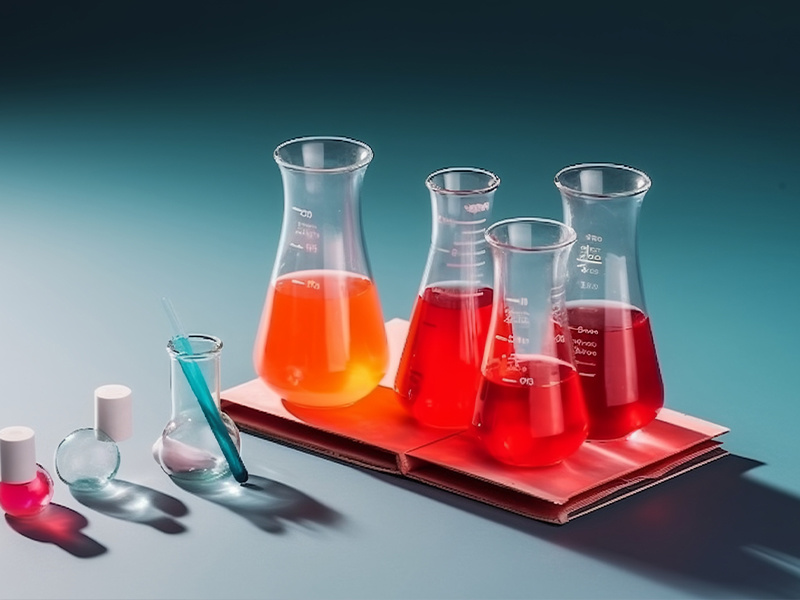How to determine the expiration date of chemical reagents?
Release time:
2024-01-30
The expiry date of reagents is an important factor affecting the accuracy of experimental results. In actual use, people are always accustomed to using the production date to judge the effectiveness of chemical reagents. In fact, this is wrong.
The expiry date of reagents is an important factor affecting the accuracy of experimental results. In actual use, people are always accustomed to using the production date to judge the effectiveness of chemical reagents. In fact, this is wrong.
Unlike food and medicine, which have strict shelf life, chemical reagents generally do not have specific requirements and limits for shelf life. This is related to the fact that the shelf life of chemical reagents is affected by many factors; it must be based on chemical properties, storage conditions, etc., and combined with the actual work Determine whether the reagent has deteriorated and whether it can continue to be used.
The influence of the nature of chemical reagents on the validity period
Chemical reagents generally do not have a shelf life. Determining whether a reagent has deteriorated is mainly based on experience and comparative testing of old and new reagents. The validity period of chemical reagents varies greatly as the chemical properties of the chemicals change. Generally speaking, substances with stable chemical properties have longer shelf life and simpler storage conditions.
Generally follow the following principles (general principles, not absolute principles):
01) Inorganic compounds, as long as they are properly stored and the packaging is intact, can theoretically be used for a long time. However, those that are easily oxidized (such as sulfites, phenols, ferrous salts, iodides, sulfides, etc.) should be stored in sealed solids or crystals and are not suitable for long-term storage; aqueous sulfurous acid and hydrogen sulfuric acid solutions should be stored in sealed containers; potassium, sodium, and white phosphorus Liquid sealing should be used) and substances that are easily deliquescent can only be stored for a short period of time (1 to 5 years) under dark, cool, and dry conditions. The specifics depend on whether the packaging and storage conditions comply with regulations.
02) Organic small molecular weight compounds are generally highly volatile, and the packaging should be tightly sealed and can be stored for a long time (3 to 5 years). However, substances that are easy to oxidize, decompose by heat, polymerize easily, and are photosensitive can only be stored for a short period of time (1 to 5 years) under dark, cool, and dry conditions. The specifics depend on whether the packaging and storage conditions comply with regulations.
03) Organic polymers, especially living materials such as oils, polysaccharides, proteins, enzymes, and peptides, are easily affected by microorganisms, temperature, and light, and lose activity or deteriorate. Therefore, they must be refrigerated (frozen) and stored. The time is also shorter.
04) Reference materials, standard materials and high-purity substances should, in principle, be stored in strict accordance with the storage regulations to ensure that the packaging is intact and to avoid being affected by the chemical environment, and the storage time should not be too long. Generally, reference materials must be used within their validity period. The storage time at normal temperature (15ºC~25ºC) generally does not exceed 2 months. It should be recalibrated or inspected before use after more than two months.
05) Culture medium:
Prepare and sterilize the culture medium according to regulations, cool it to room temperature, and store it in a dark place (store it in a refrigerator if possible). The prepared culture medium should be used up within 1 month.
06) Unless otherwise specified, the validity period of test solution, buffer solution and indicator (liquid) is half a year. The mobile phase and purified water used for liquid phase are valid for 15 days.
07) Unless otherwise specified, liquid reagents are valid within one year after opening, and solid reagents are valid within three years after opening.
The impact of the storage environment of chemical reagents on the validity period
01) Effect of air:
Oxygen in the air easily oxidizes and destroys reducing reagents. Strongly alkaline reagents can easily absorb carbon dioxide and turn into carbonates. Moisture can cause some reagents to deliquesce and agglomerate; fibers and dust can cause some reagents to reduce and change color.
02) Effect of temperature:
The rate at which reagents deteriorate is temperature dependent. High temperatures in summer will accelerate the decomposition of unstable reagents; severe cold in winter will cause formaldehyde to polymerize and precipitate and deteriorate.
03) Effect of light:
Ultraviolet rays in sunlight can accelerate the chemical reactions of certain reagents and cause them to deteriorate (such as silver salts, mercury salts, potassium, sodium, ammonium salts of bromine and iodine, and certain phenolic reagents).
04) Effect of impurities. The purity of unstable reagents and their impact on their deterioration cannot be ignored. For example, pure mercury bromide is actually not affected by light, while mercury bromide containing trace amounts of mercury bromide or organic impurities easily turns black when exposed to light.
05) Effect of storage period. Unstable reagents may undergo changes such as disproportionation, polymerization, decomposition or precipitation after long-term storage. During the storage period and validity period, if the liquid is found to have stratification, turbidity, discoloration, mold and other abnormal phenomena, when the mobile phase is used for sample testing, the retention time or relative retention time of the sample will change significantly, and the solid will be found to absorb moisture, change color, etc. If any abnormality occurs, use should be stopped.
The impact of chemical reagent usage requirements on the validity period:
Make judgments about the validity period of chemical reagents based on the requirements of use. The most important point is to judge whether the reagent has an impact on the results. If it does, the validity period needs to be shortened or even scrapped.
Keywords:
SAF Coolest v1.3.1.2 设置面板 GQYSD-ZROR-GAZDE-AXQ
V1.3.1 SVG图标库请自行添加图标,用div包起来,并命名使用
Feedback
Quick Navigation
Contact Us
Email: jason@corechemie.com
TEL: 86-020-87223588
Address: 9/F,Unit 1, Runcheng Science and Technology Park,
Zengcheng,Guangzhou,Guangdong,China
Copyright © 2023 Corechem Corporation Holding Co.,Ltd







